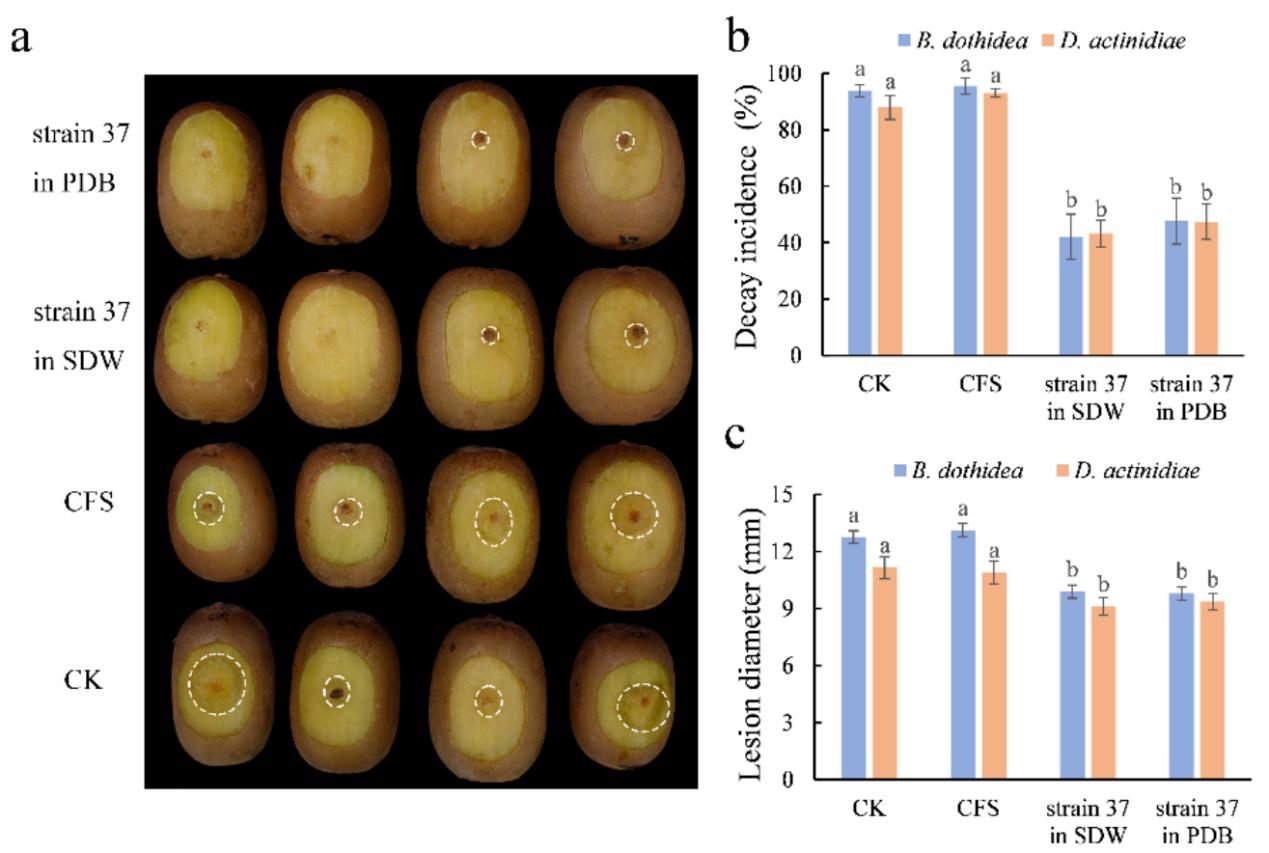Name:ZHONG Caihong LI Li
Tell:
Email:zhongcaihong@wbgcas.cn lili@wbgcas.cn
Organization:Wuhan Botanical Garden
Biocontrol Yeast Meyerozyma guilliermondii 37 Controls Kiwifruit Soft Rot
2023-01-16
Postharvest kiwifruit is susceptible to various fungal pathogens, especially soft rot causing massive industry losses. Due to scientific concerns about consumer health and the ecosystem, as well as rising constraints on the application of chemical fungicides, extensive research has been conducted on safe and effective biocontrol agents. Several studies have found biocontrol yeast to be efficient against blue mold, gray mold, and black rot of kiwifruit. However, there are few reports on biocontrol yeast against kiwifruit postharvest soft rot caused by Botryosphaeria dothidea and Diaporthe actinidiae, as well as potential mechanisms.
Researchers from Wuhan Botanical Garden, together with the collaborator from Huazhong Agricultural University, screened 1113 yeast strains and identified an antagonistic yeast, Meyerozyma guilliermondii 37, which can effectively inhibit kiwifruit soft rot, and significantly reduce natural decay in stored kiwifruit without affecting soft-ripe quality.
Results revealed that M. guilliermondii 37 significantly inhibited the spore germination rate of the pathogen to 28.52% and decay incidence rate to 42.11% in artificially infected kiwifruit. And the cell-free supernatant had no obvious inhibitory effect on pathogens, indicating that M. guilliermondii 37 had no direct inhibitory effect against the two pathogens. Additionally, the M. guilliermondii 37 attached tenaciously to the pathogens’ mycelium and colonized rapidly in kiwifruit flesh.
Nutrients and space competition and induction of kiwifruit resistance were the primary modes of action against pathogens. Further postharvest soaking treatment of kiwifruit with biocontrol yeast significantly decreased incidence of natural decay to 35.69% while also preserving the soft-ripe quality.
This study firstly screened and identified an antagonistic yeast that could reduce kiwifruit soft rot incidence. M. guilliermondii 37 could be applied as a biocontrol agent to prevent soft rot in kiwifruit.
This work was funded by National Natural Science Foundation of China, the Key Research and Development Program of Hubei Province, Yangtze River Kiwifruit Industry Technology Research Project, and China Agriculture Research System of MOF and MARA. Results have been published on Microorganisms entitled “Biocontrol ability and action mechanism ofMeyerozyma guilliermondii37 on soft rot control of postharvest kiwifruit”.

Effect of different treatments of M. guilliermondii 37 on kiwifruit soft rot caused by B. dothidea and D. actinidiae (Image by WBG)